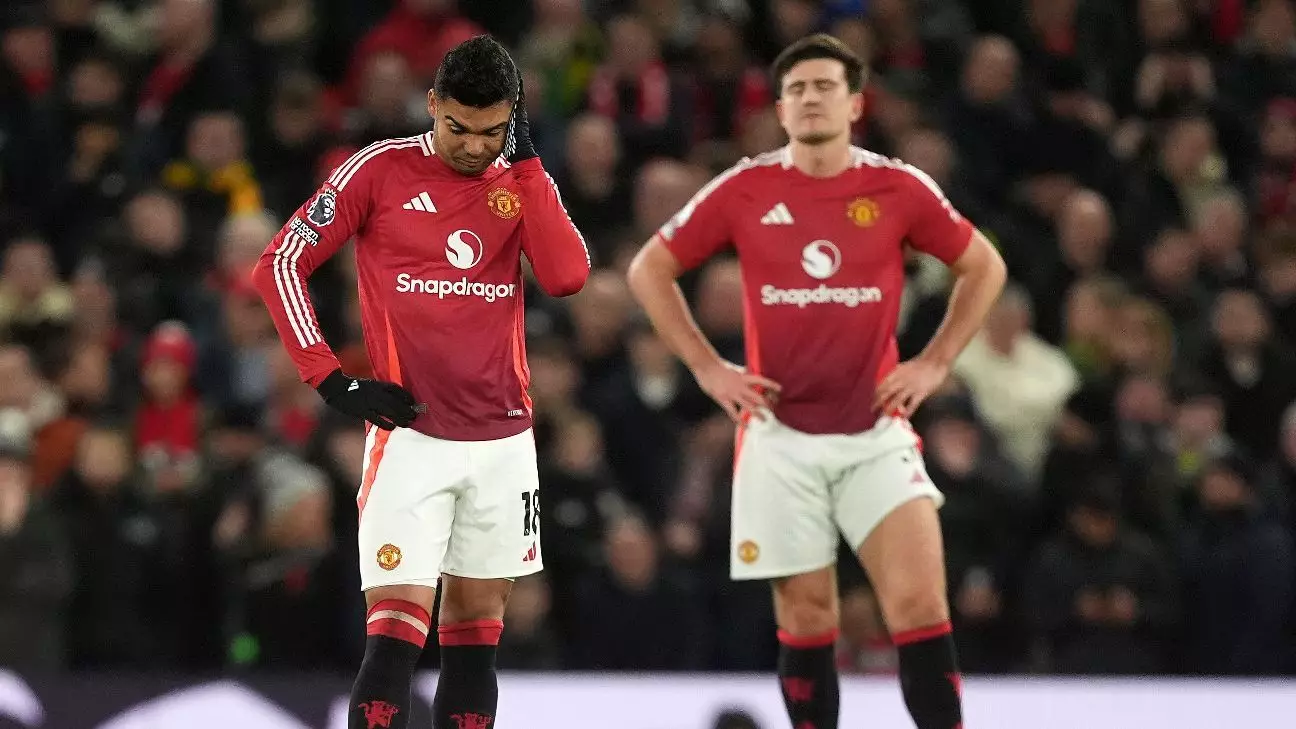The turmoil at Manchester United has escalated, hitting a nadir with their recent performance against Newcastle United. On a particularly grim evening at Old Trafford, the palpable frustration among supporters reached a boiling point. With the team down 2-0 within the first thirty minutes, the managerial choices of Ruben Amorim were scrutinized. Substituting Joshua Zirkzee, a recent acquisition from Bologna, became symbolic; the response from fans clearly indicated that Zirkzee was merely a scapegoat for the team’s broader issues. This frustration led to a chorus of cheers as he left the pitch, illustrating the depth of discontent that permeates through the club.
The defeat against Newcastle marked yet another entry into the record books, albeit for all the wrong reasons. As Manchester United slumps to their fourth consecutive loss and their sixth in the last eight games, they find themselves staring down the barrel of relegation concerns for the first time since the 1978-79 season. Their league standing is precarious; sitting in 14th, with only a seven-point cushion above the relegation zone, the urgency for performance has never been greater. The historical weight of their performance — three consecutive home league defeats for the first time in over four decades — amplifies the pressure on both the manager and the players.
Ruben Amorim’s tenure, which began with promise, has quickly transformed into a nightmare. In his post-match remarks, he alluded to the collective struggle that grips the team, attributing the recent downturn to a lack of confidence and insufficient training time. However, the harsh reality is that a club of Manchester United’s stature cannot afford to excuse consistent underperformance. His admission that it is “embarrassing” to lose so many games as coach reflects the gravity of the situation, yet it simultaneously raises the question of whether the responsibility lies solely with him or extends further into the ranks of his players.
The performance against Newcastle was riddled with glaring errors, suggesting that tactical formulations alone cannot shoulder the blame for defeats. Players like Harry Maguire and Lisandro Martínez faltered defensively, allowing opportunistic goals that should have been easily thwarted. Amorim’s insistence on a 3-4-3 system, despite questions surrounding its suitability, suggests a coaching philosophy that yearns for stability even while the ship is sinking.
The atmosphere within Old Trafford has shifted from mere disappointment to unbridled anger. The fans had reached a point where they were chanting “You’re getting sacked in the morning” at Amorim as Newcastle dominated the field. This emotional climate reflects a stark transformation; once a fortress that opponents dreaded visiting, Old Trafford has become a stage for humiliation. The exodus of fans mid-game, disillusioned before the final whistle, exemplifies the severity of their disenchantment with the squad.
The second-half performance, though less disheartening, appeared too late to mitigate the overall dissatisfaction. Even a spirited comeback effort cannot overshadow the initial thirty minutes of lethargy that already buried the team under two goals. Newcastle’s relentless pursuit and their clinical nature became a damning critique of United’s frail defenses and lack of cohesion on the pitch.
As Manchester United prepares to face Liverpool in their next fixture, the implications of another defeat loom heavily. A continued slide into oblivion could lead not just to Amorim’s dismissal but may also ignite calls for a deeper evaluation of the club’s structural issues. The question that hangs in the air is whether a change of manager would indeed resolve the team’s shortcomings or merely paper over the existing cracks.
Moreover, the managerial position at Manchester United demands more than tactical ingenuity; it requires a leader capable of galvanizing players and restoring faith among a devastated fanbase. Should Amorim fail to turn the tide, the repercussions could extend well beyond the pitch, exacerbating the club’s longstanding crisis and further alienating a devoted following that has stood by in hopes of rejuvenation.
The current state of Manchester United transcends merely poor results; it signifies a critical juncture in the club’s vast history. If they are to emerge from this crisis, both the board and the players must reevaluate their commitment to the club’s legacy. The fans, hurt and frustrated, demand not just victory but a return to the principles that once made Manchester United a revered powerhouse in football. Without decisive action and a return to form, one must ponder: what does the future hold for this storied club? The clock is ticking, and the pressure is mounting.
